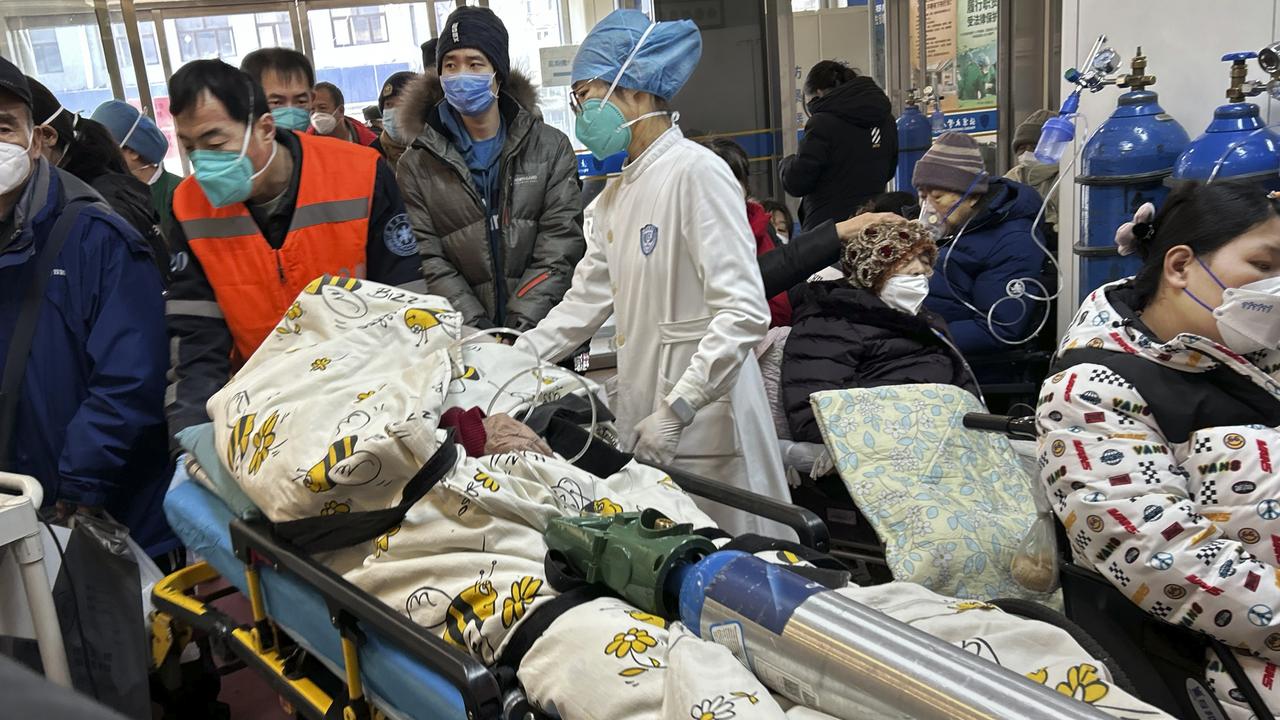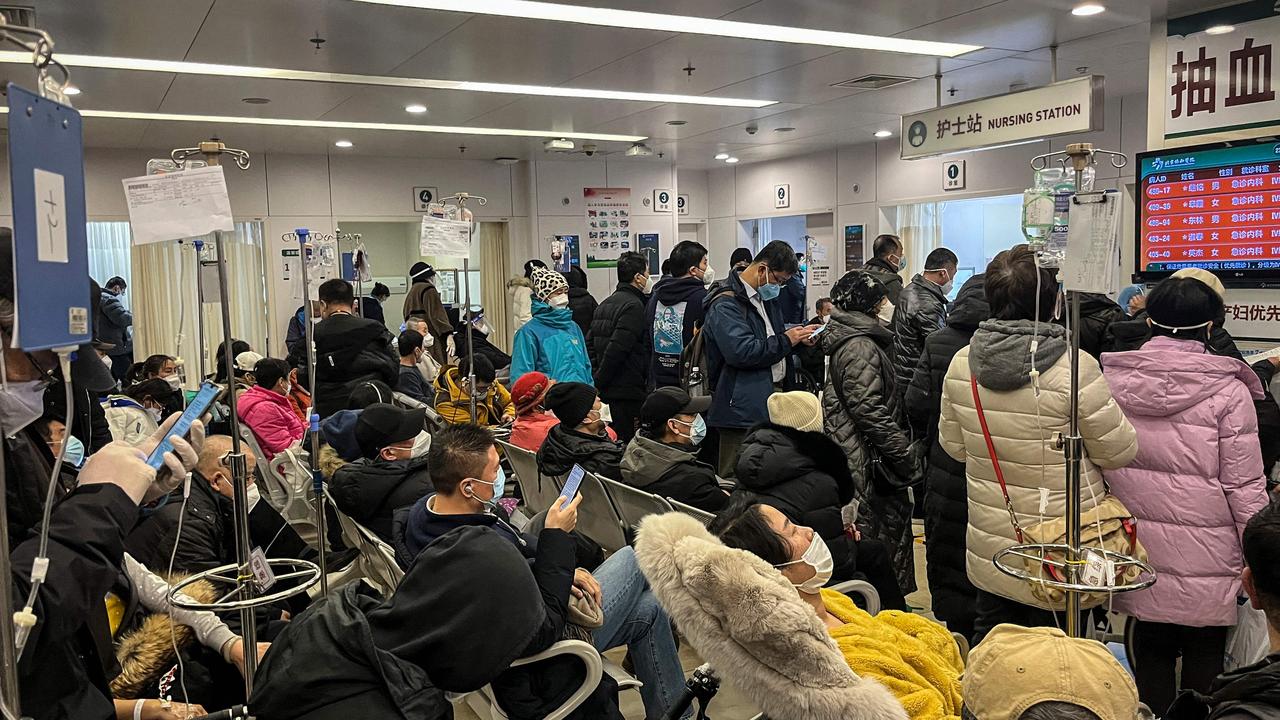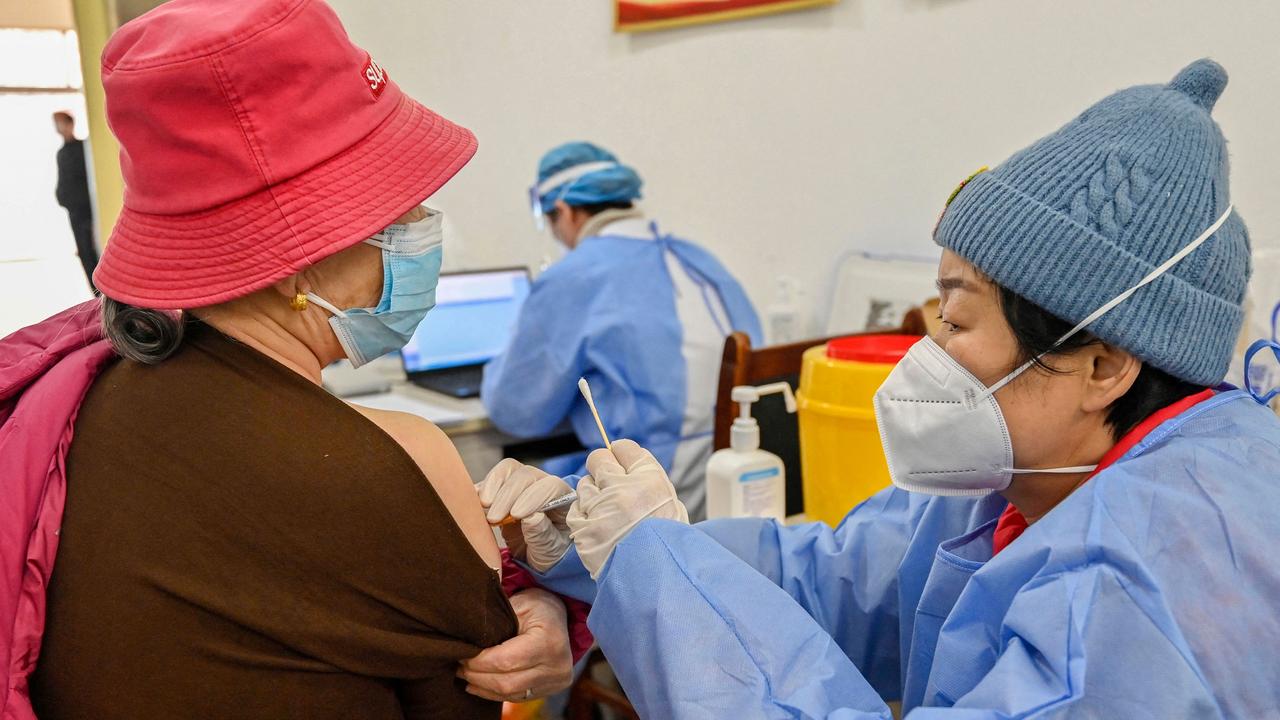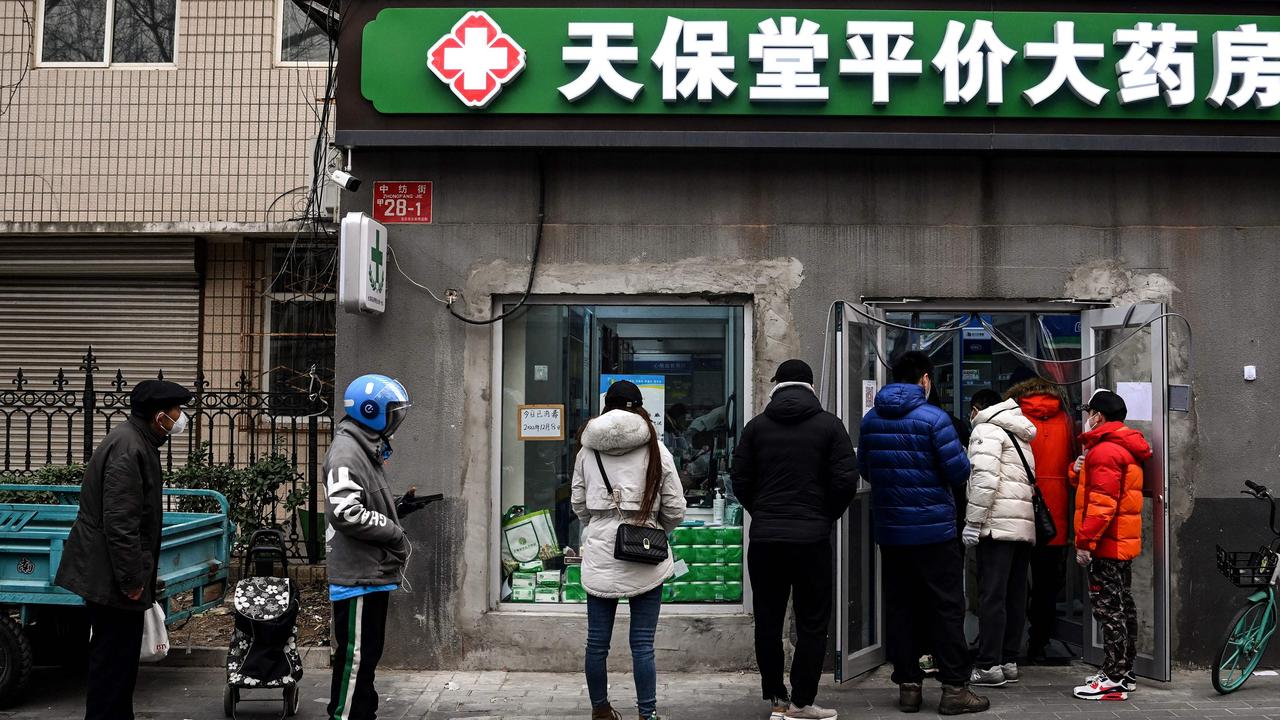China’s Covid explosion could lead to new variants, epidemiologist warns
With reports of morgues and pharmacies pushed to capacity in China because of a Covid explosion, a health expert has shared a major fear.
As China turbulently transitions out of a Covid-zero approach, the swift increase in cases has caused much international concern.
With reports of hospitals, morgues and pharmacies pushed to capacity, combined with the country opening its international borders after a three-year freeze, issues have been raised from the potential economic fallout to how China’s unprecedented wave could stunt progress against the pandemic.

Clinical scientist and head of the University of Melbourne’s School of Health Sciences, Bruce Thompson, said the worry was warranted, especially when it came to the potential for a new sub-variant (like XBB. 1.5) or a variant (like Omicron) to emerge.
“When you contract Covid, there is a chance that the virus will mutate and that will happen with any individual. They then will give it to somebody else and if it’s a new version, they will be more likely to contract it,” Professor Thompson explained to NCA NewsWire.

“When you have a population the size of China, the chances of mutation are going to be higher than the chances of a mutation happening in Tasmania.
“It’s like throwing a hand grenade into that situation. It’s kind of scary.”
Professor Thompson said it was a valid and real issue, with the key threat being if the strain becomes more “virulent”, which could lead to increased hospitalisations or deaths.
“Understandably, you have to listen to that. That’s a reality,” he added.
China’s decreased herd immunity, and vaccination strategy added to the concern, Professor Thompson said. Unlike the mRNA vaccines (Pfizer-BioNTech or Moderna), China relies on their homegrown vaccines.
“China at the end of the day is a country that is not as well vaccinated as somewhere like us, and the virus has taken off,” Professor Thompson said.
“The level of vaccination and the type of vaccines and the ones they’ve developed are arguably not as efficacious as ours and people say the information coming out of China is a little slow.”

The World Health Organisation (WHO) has shared fears that hospitalisations and deaths due to Covid were under-represented in China.
WHO emergencies director Mike Ryan told a briefing in Geneva that he believed the figures were “too narrow,” Reuters reports.
“We believe the current numbers being published from China under-represent the true impact of the disease in terms of hospital admissions, in terms of ICU admissions, particularly in terms of death,” he said.
“We still do not have complete data.”
In one report from Bloomberg dated before Christmas, numbers shared in a meeting of China’s National Health Commission suggested that 248 million people had been infected with Covid in the first 20 days of December. This equated to nearly 18 per cent of their 1.412 billion total population.

How China’s Covid surge could affect Australia
A large-scale Covid outbreak in China – considered to be our largest trading partner – has the power to affect Australian supply chains and domestic markets as well.
Last week, Treasurer Jim Chalmers said the potential impact on supply chains was “one of the key risks to our economy in 2023”.
“We are heavily reliant on Chinese markets and Chinese workforces for a lot of the goods in our economy. It’s really right across the board,” he said.
“And so as we look ahead to what will be a challenging year for the global economy, a big part of that, in a whole range of industries, will be the pressure on supply chains brought about by this Covid wave in China.”
Senior economist and Australia Institute executive director Richard Denniss said the impact to supply chains between China and Australia could increase inflation in 2023.
He predicted the global impact of China’s surging Covid cases would be felt within “months”.
“The inflation we’re currently experiencing started with supply chain problems with Covid and was made worse by Russia’s invasion of the Ukraine,” Dr Denniss told NCA NewsWire. “Unfortunately, if Chinese production declines significantly, we’re going to see higher prices and more inflation. That’s inevitable.”

Any impact on China’s manufacturing capabilities will also hugely impact the availability of silicon chips and building materials, both of which were hampered during the country’s Covid-zero measures throughout 2020 to 2021.
New car production decreased and the cost of building materials soared from the resulting supply chain issues.
“There are 800,000 people employed in manufacturing in Australia, but a lot of Australian manufacturing still relies on components made overseas, many of which are in China,” said Dr Denniss.
“After decades of Australia outsourcing so much manufacturing to China, we’ve made ourselves so much more vulnerable to China’s trade policy, health policy, health outcomes and everything else.
“The reality is that we spent decades opening up the Australian economy to the rest of the world and the consequence is that when the rest of the world struggles to make stuff, we’re going to have to pay higher prices for it.”
Originally published as China’s Covid explosion could lead to new variants, epidemiologist warns



